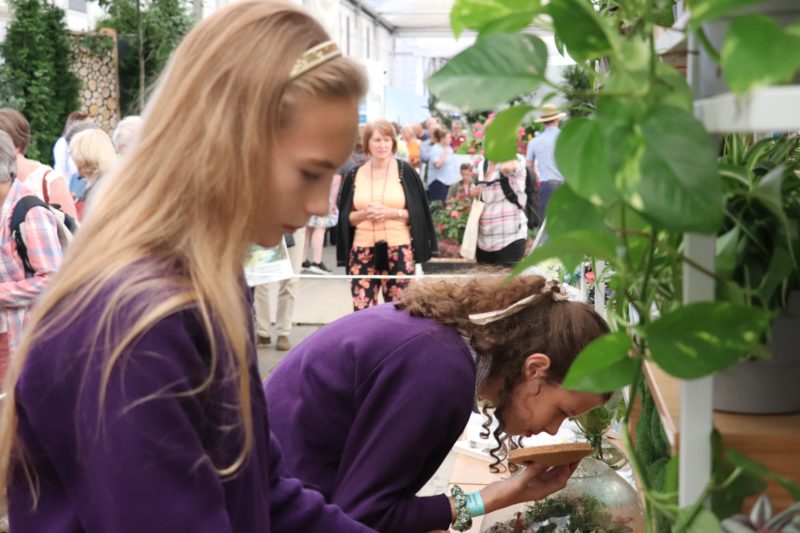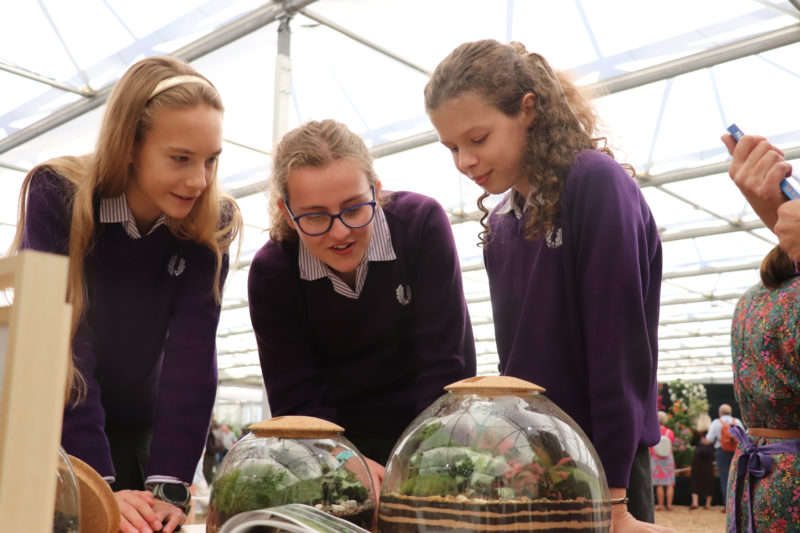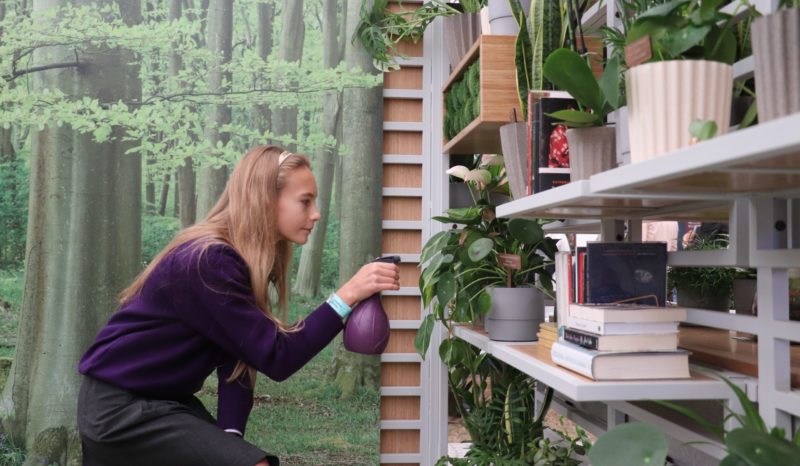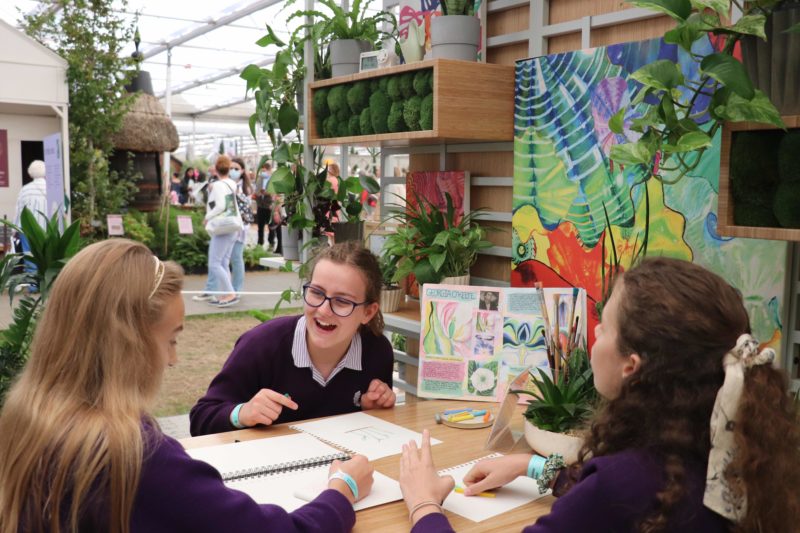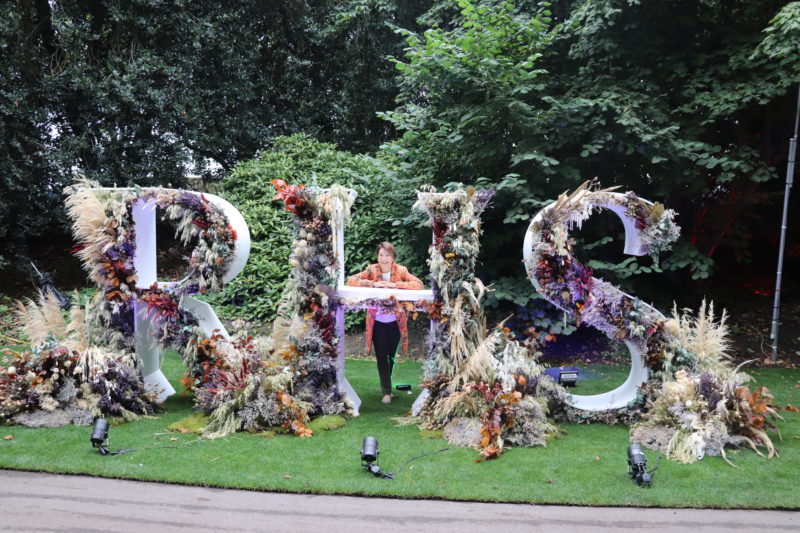Putney’s learning journey has been considerable, experimenting with a choice of plants based on their ability to remove chemical vapours, ease of growth and maintenance, resistance to insect infestation and ability to increase humidity.
Top performers included the moth orchid, spider plant, snake plant, heart-leaf philodendron, anthurium, peace lily, dragon tree and areca palm.
In the Discovery Zone of the RHS Show at Chelsea, the school showcased how relatively small and inexpensive changes can make a big difference. It’s a simple but effective concept of introducing one plant per child, and they hope that through the Chelsea Flower Show they will be able to reach out to encourage other schools to do the same.
Head Suzie Longstaff said:
“In effect, we took our Sixth Form Futures Hub on tour. The plants at Chelsea were the ones that have been around school, and will go back into classrooms afterwards.
When we embarked on this project, with a handful of plants, we little appreciated the impact it might have. Biophilia and sustainability are now at the heart of our thinking as we work with students to continue to look at how we can improve wellbeing and the environment.
Our new Athena Centre, for Science, Music, Drama and Debating has been designed with these sustainable principles at its core.
It’s not rocket science but we did get it from NASA.”
DOWNLOAD OUR PLANT GUIDE FOR SCHOOLS HERE

